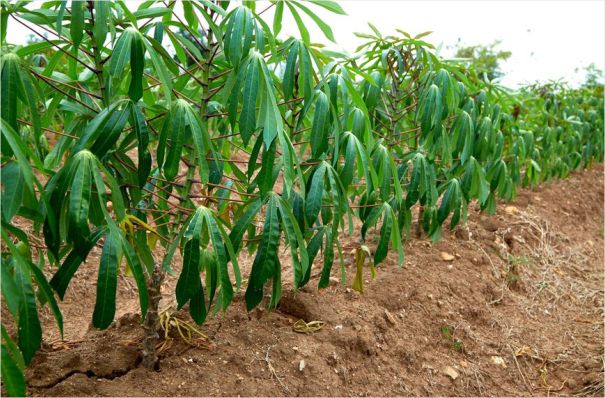- This topic is empty.
- AuthorPosts
- April 3, 2025 at 6:07 am #619847

Soil fertility plays a critical role in the growth and yield of cassava, a major staple crop in many tropical and subtropical regions. Cassava is known for its ability to grow in a variety of soil types, but its performance is highly influenced by soil conditions, particularly fertility.
Fertile soil provides the essential nutrients that cassava needs to grow robustly, produce high yields, and maintain overall plant health. Understanding the impact of soil fertility on cassava can help farmers optimize their practices to increase productivity and ensure food security.
1. Importance of Soil Nutrients for Cassava Growth
Cassava requires a balanced supply of essential nutrients to support its growth and development. The primary nutrients needed by cassava include nitrogen (N), phosphorus (P), potassium (K), calcium (Ca), magnesium (Mg), and sulfur (S), along with trace elements such as iron, zinc, and boron.
Nitrogen is vital for vegetative growth and leaf development, phosphorus is important for root formation, and potassium helps with overall plant health and stress resistance.
Soil fertility directly influences the availability of these nutrients, and when soil nutrient levels are adequate, cassava plants are better able to grow vigorously and produce higher yields.
2. Impact of Soil pH on Cassava Performance
Soil pH is a key factor in determining the availability of nutrients to cassava. Soils that are too acidic or too alkaline can limit the absorption of essential nutrients. Cassava thrives best in slightly acidic soils with a pH range between 5.5 and 6.5.
In soils with a pH outside this optimal range, essential nutrients may become less available or toxic to the plants, leading to stunted growth, poor root development, and reduced yields.
Therefore, maintaining the right pH level through soil amendments such as lime (to raise pH) or sulfur (to lower pH) is important for ensuring that cassava plants can access the nutrients they need for healthy growth.
3. Organic Matter and Soil Structure
The presence of organic matter in the soil is another crucial factor for cassava growth. Organic matter, such as decomposed plant material and animal manure, improves soil structure, increases water-holding capacity, and enhances microbial activity. Well-structured soil promotes root penetration, allowing cassava plants to access nutrients and water more effectively.
Organic matter also helps retain soil moisture, which is important for cassava, especially during dry periods. Additionally, it supports the soil’s ability to hold and release nutrients gradually, ensuring a continuous supply of nutrients to the plants.
In regions where soil organic matter is low, farmers can improve soil fertility by adding compost, green manure, or animal manure.
4. Soil Erosion and Fertility Degradation
Soil erosion and fertility degradation are significant challenges that affect cassava production. Erosion removes the topsoil, which is rich in nutrients, leading to a decrease in soil fertility. In areas prone to heavy rainfall or poor land management practices, soil erosion can be particularly detrimental to cassava crops.
Without proper soil conservation techniques, cassava plants may struggle to grow in degraded soils, resulting in reduced yields.
To mitigate this, farmers can implement practices such as contour plowing, terracing, and the use of cover crops to reduce soil erosion and protect soil fertility. Sustainable land management practices are essential to maintaining soil health and ensuring consistent cassava production.
5. Fertilization and Its Effect on Cassava Yields
Fertilization is a common practice used to improve soil fertility and boost cassava yields. While cassava can grow in relatively poor soils, applying fertilizers can significantly increase productivity, especially in soils with nutrient deficiencies.
Fertilizers provide a quick and concentrated source of nutrients, which can help supplement the natural fertility of the soil. However, over-fertilization can lead to nutrient imbalances, soil acidification, and environmental pollution.
Therefore, it is essential to apply fertilizers based on soil nutrient tests and the specific needs of the cassava crop. A balanced fertilization program, incorporating both organic and inorganic fertilizers, can improve cassava growth and enhance yield while protecting the long-term health of the soil.
The impact of soil fertility on cassava growth and yield cannot be overstated. Fertile soils provide the necessary nutrients, maintain proper pH levels, improve soil structure, and support sustainable farming practices. Farmers who understand the relationship between soil fertility and cassava production can take steps to optimize soil conditions, resulting in healthier plants and higher yields.
Through proper soil management, fertilization, and conservation techniques, cassava farmers can enhance productivity, reduce environmental degradation, and ensure the long-term sustainability of cassava cultivation.
Read Also: Cassava Stem Selection and Preparation
- AuthorPosts
- You must be logged in to reply to this topic.

